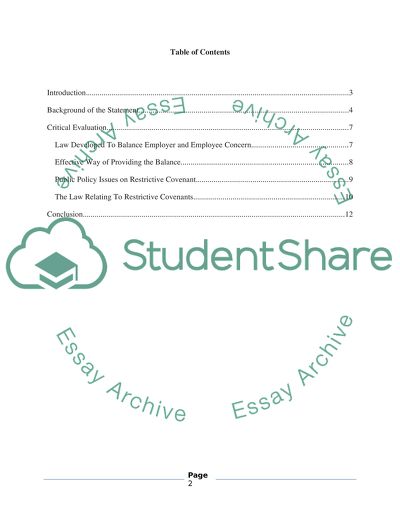Cite this document
(“1.The courts have struck a fair balance between the economic interests Essay”, n.d.)
Retrieved from https://studentshare.org/law/1671874-1the-courts-have-struck-a-fair-balance-between-the-economic-interests-of-the-employer-and-the-public-interest-in-allowing-employees-to-utilise-their-skills-once-the-employment-contract-has-ended-discuss-with-reference-to-the-case-law-on-restraint
Retrieved from https://studentshare.org/law/1671874-1the-courts-have-struck-a-fair-balance-between-the-economic-interests-of-the-employer-and-the-public-interest-in-allowing-employees-to-utilise-their-skills-once-the-employment-contract-has-ended-discuss-with-reference-to-the-case-law-on-restraint
(1.The Courts Have Struck a Fair Balance Between the Economic Interests Essay)
https://studentshare.org/law/1671874-1the-courts-have-struck-a-fair-balance-between-the-economic-interests-of-the-employer-and-the-public-interest-in-allowing-employees-to-utilise-their-skills-once-the-employment-contract-has-ended-discuss-with-reference-to-the-case-law-on-restraint.
https://studentshare.org/law/1671874-1the-courts-have-struck-a-fair-balance-between-the-economic-interests-of-the-employer-and-the-public-interest-in-allowing-employees-to-utilise-their-skills-once-the-employment-contract-has-ended-discuss-with-reference-to-the-case-law-on-restraint.
“1.The Courts Have Struck a Fair Balance Between the Economic Interests Essay”, n.d. https://studentshare.org/law/1671874-1the-courts-have-struck-a-fair-balance-between-the-economic-interests-of-the-employer-and-the-public-interest-in-allowing-employees-to-utilise-their-skills-once-the-employment-contract-has-ended-discuss-with-reference-to-the-case-law-on-restraint.


